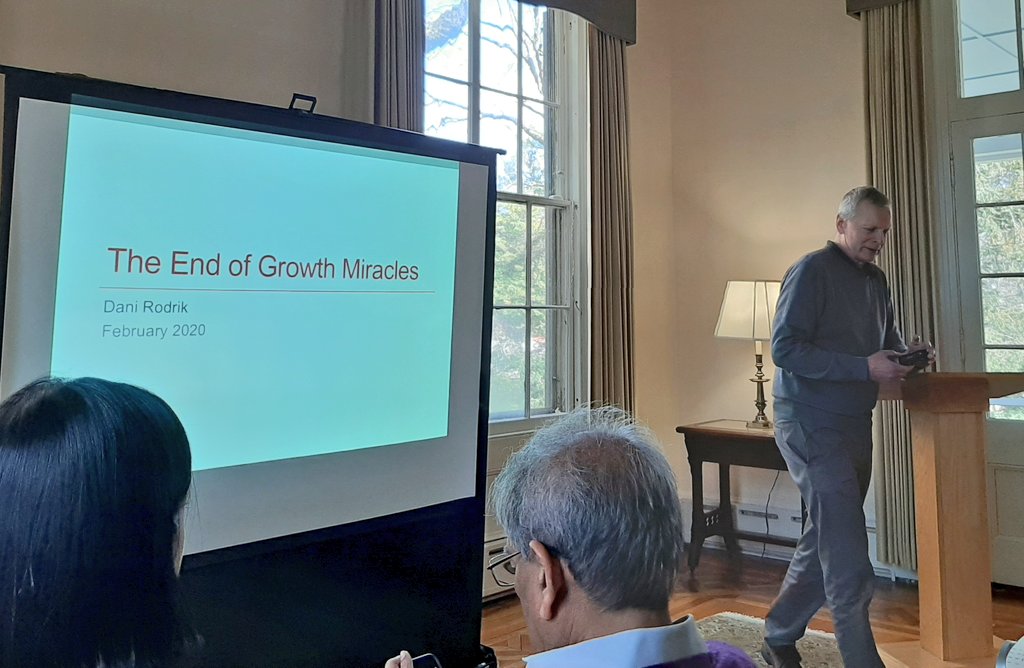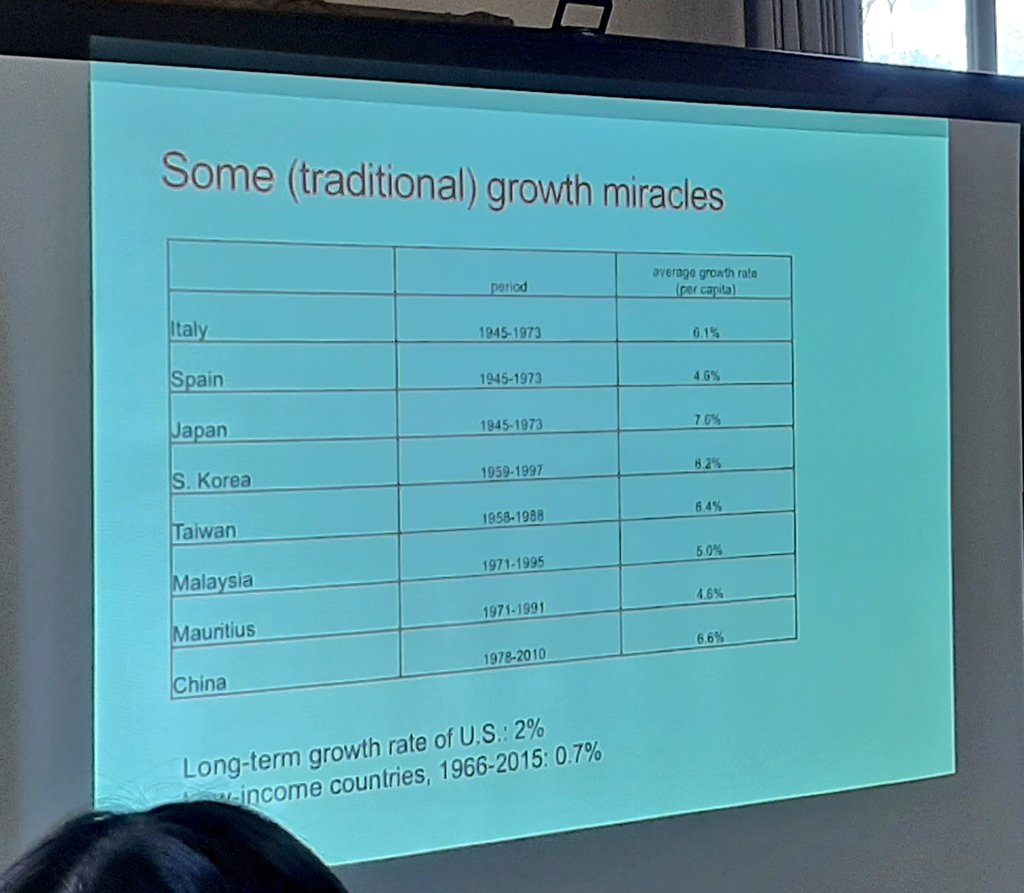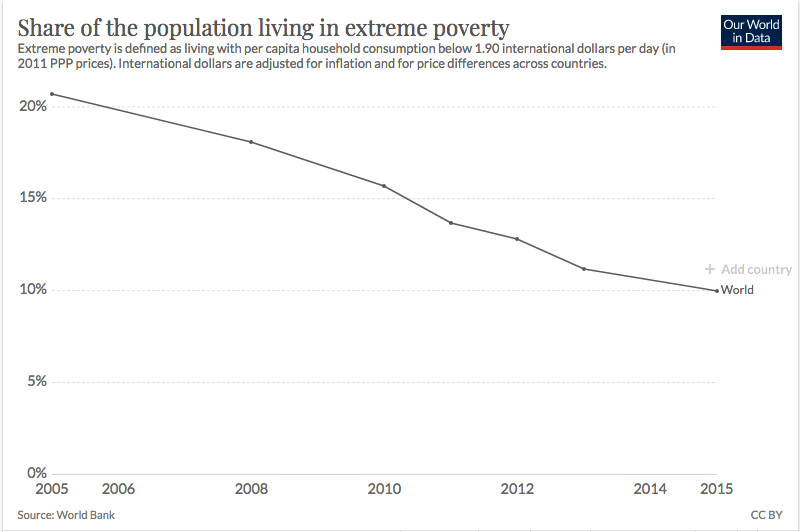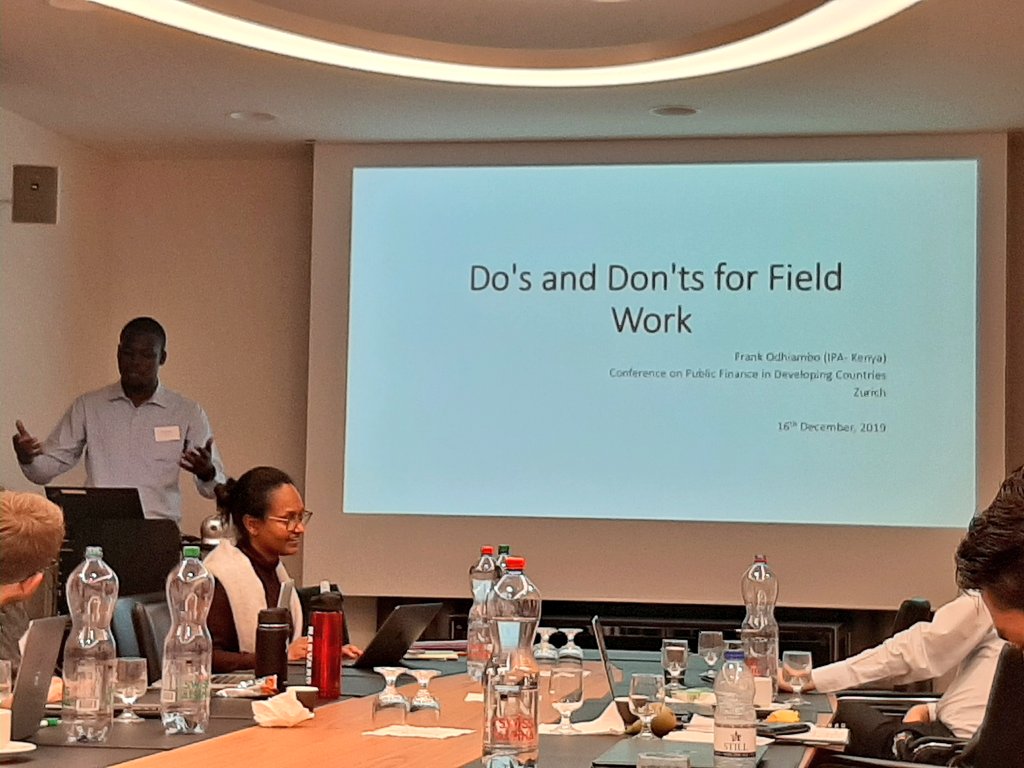
Income inequality over time in the US vs. Switzerland.
In the US, income inequality is much higher and has grown hugely over recent years:

In the US, income inequality is much higher and has grown hugely over recent years:
https://twitter.com/ubscenter/status/1322980601335582730


Wealth inequality, on the other hand, has increased a lot both in the US and in Switzerland, and is similarly high in both countries.
Wealth inequality is as usual much higher than income inequality.

Wealth inequality is as usual much higher than income inequality.
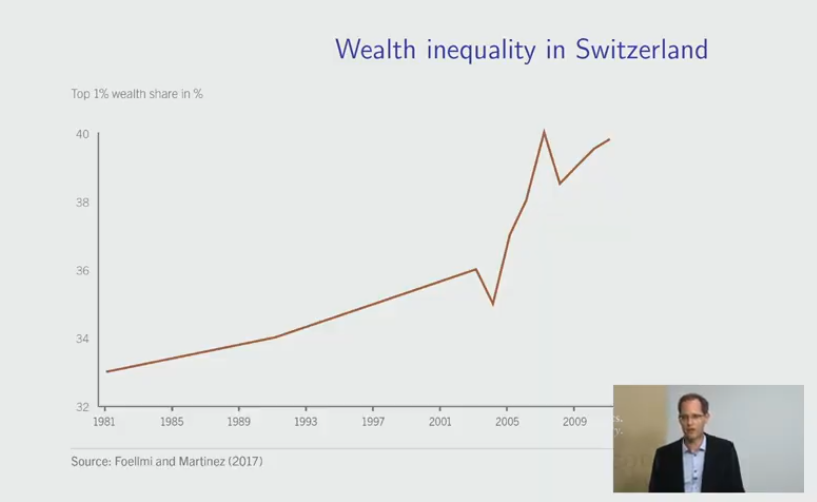

For the richest, capital gains taxes are a large part of total taxes paid. This is significant because capital gains are usually taxed lower than regular income taxes.
In the US, if you never sell the capital before you die, the capital gains escape taxation all together.
In the US, if you never sell the capital before you die, the capital gains escape taxation all together.
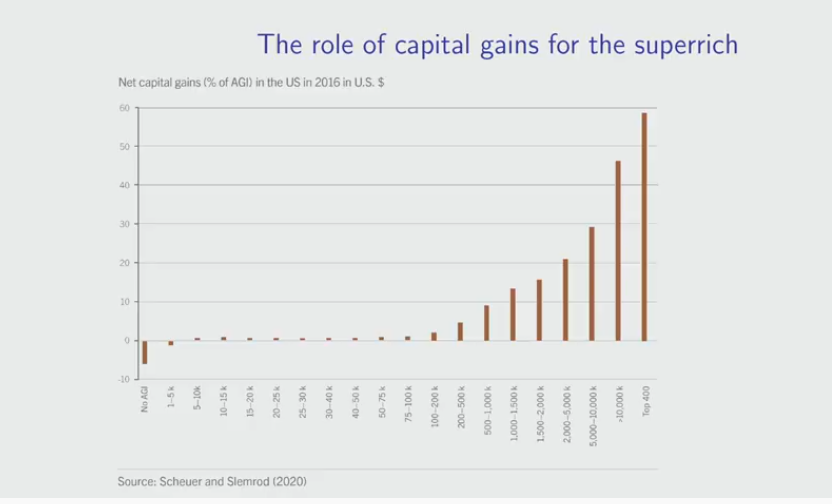
As a result of this, taxation at the top can become regressive: people with higher income end up paying a lower tax rate.
Florian illustrates this with examples from Jeff Besos & Warren Buffet. Buffet famously pointed out that he was paying a lower tax rate than his secretary.
Florian illustrates this with examples from Jeff Besos & Warren Buffet. Buffet famously pointed out that he was paying a lower tax rate than his secretary.
One potential way to address this: a wealth tax. Here are wealth tax rates in Switzerland.
We see that they vary a lot (from 0.1% in Nidwalden to 1.1% in Geneva). They start at relatively small amounts of wealth (starting at around $50'000 to $250'000)

We see that they vary a lot (from 0.1% in Nidwalden to 1.1% in Geneva). They start at relatively small amounts of wealth (starting at around $50'000 to $250'000)


The current proposals from the US on the contrary propose wealth taxes that are restricted to the very rich (millionaires and billionaires) and at higher tax rates.
Switzerland, on the other hand, has no capital gains tax and not federal inheritance tax, and over recent years many cantons have abolished the cantonal inheritance taxes as well.
An alternative to introducing or increasing wealth taxes is to fix the inequality of how capital gains are taxed.
For example, Biden proposes to tax capital gains at the same rate as regular income for those with income over a million, and to tax capital gains at death.
For example, Biden proposes to tax capital gains at the same rate as regular income for those with income over a million, and to tax capital gains at death.
More information on all of this can be found in @Florian_Scheuer's discussion paper:
ubscenter.uzh.ch/en/publication…
ubscenter.uzh.ch/en/publication…
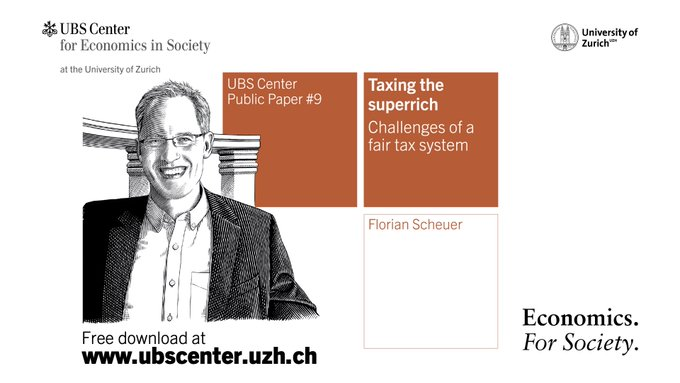
The event now continues with a Q & A of questions submitted by the audience. I will post the link to the video here afterwards, for those who missed it.
Link to the full talk on inequality and taxation by @Florian_Scheuer is here: 
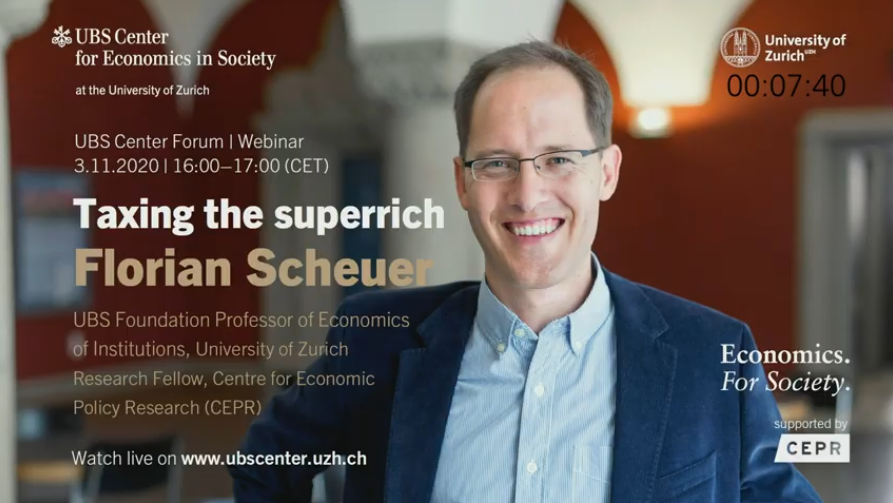
• • •
Missing some Tweet in this thread? You can try to
force a refresh












